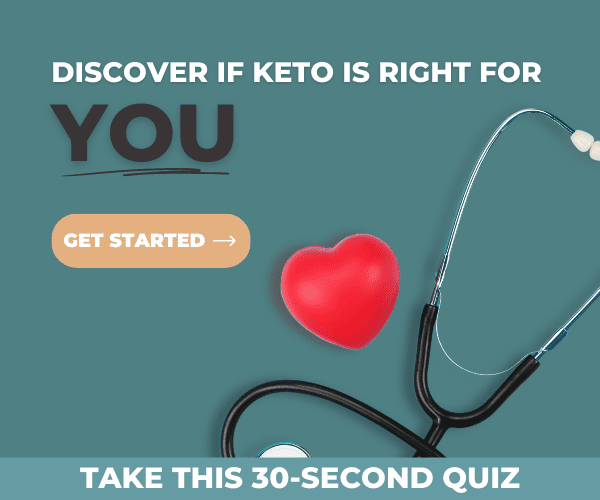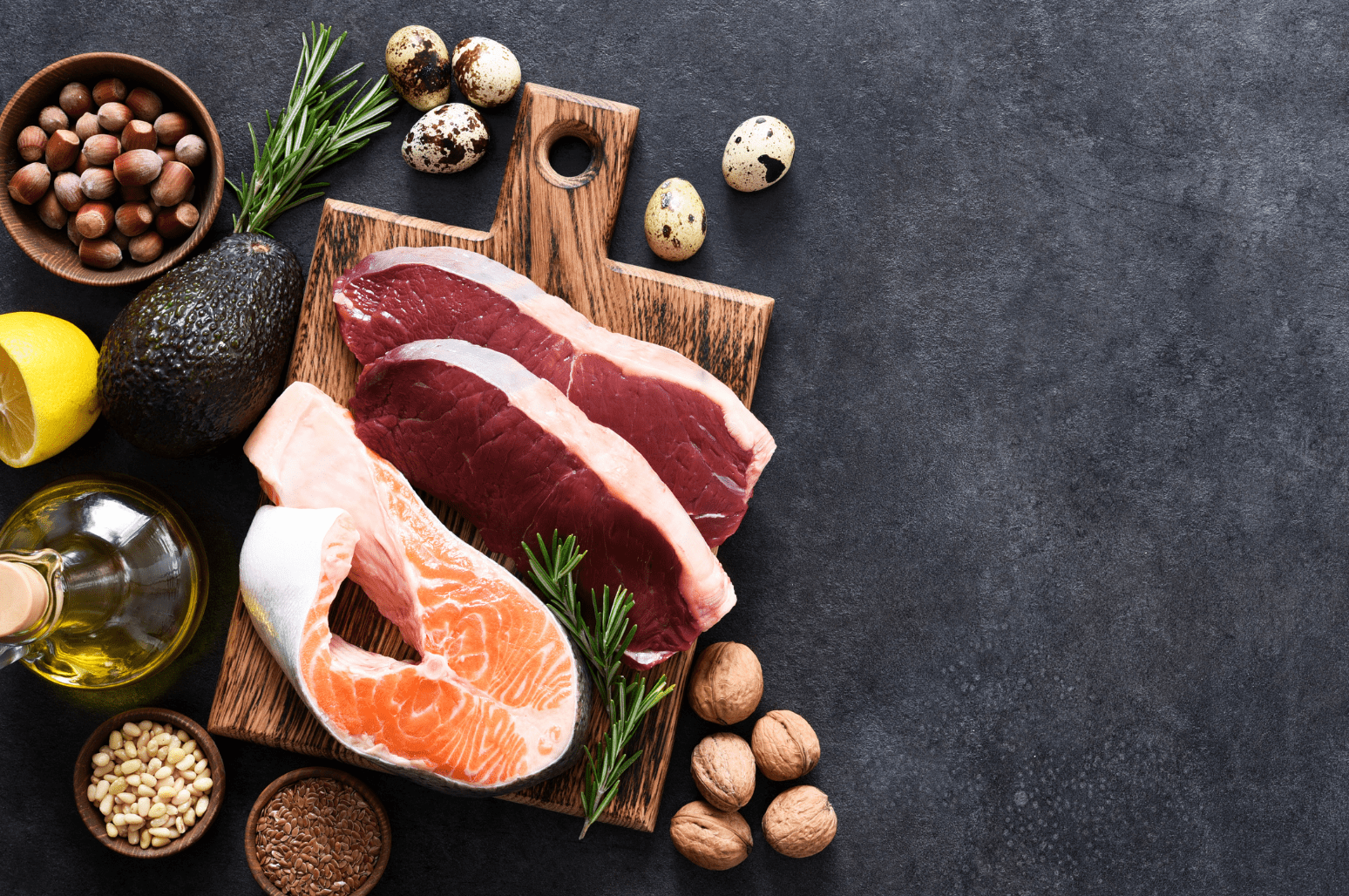
Without energy, it can seem impossible to perform your daily tasks and function normally, never mind optimally! While switching to a keto lifestyle powers up plenty of people, some may feel fatigued and need ways to boost energy, particularly when first starting out.
You might even be wondering if you’re doing something wrong or if keto really is the right lifestyle choice for you. Don’t dismay if you’re feeling fatigued. It takes time for your body to adjust to being in ketosis. Check out these top tips to boost energy on keto.
Top Tips for Boosting Energy on Keto
One of the most common reasons for fatigue on keto is the keto flu, which refers to a cluster of symptoms that can occur during the adjustment period during which your body is switching over to using fat for fuel instead of sugar. Keto flu usually only lasts a few days, but some people might have symptoms for a week. When you go low carb, your body releases water and loses electrolytes like sodium and potassium. If you don’t drink enough water and replenish this loss in electrolytes, you risk dehydration and symptoms of the keto flu [1].
Stay Hydrated and Replenish Electrolytes
Dehydration holds you back from feeling energized and causes symptoms similar to the keto flu, such as brain fog, fatigue, and muscle cramps. Make sure you’re drinking enough water to stay hydrated, and use an electrolyte powder in your drink for added minerals.
Consume a mineral-rich, well-formulated ketogenic diet and fill your plate with magnesium and potassium-rich foods like avocado and fish.
Keto dieters often use more salt on their food to obtain sufficient sodium and trace minerals. Use a high-quality salt like a Celtic sea salt or an Arctic salt, and happy salting! [2]
Eat More Calories
Keto helps you stay satiated, so you don’t feel as hungry as when you were eating a high carb diet. Ketosis accelerates your metabolism, and you burn around 300 more calories daily on a keto diet [3].
On keto, you also burn more body fat, which is positive for weight loss. However, it’s easy to undereat on keto, and consuming too few calories can make you feel fatigued because you don’t have the caloric energy to function properly.

Undereating also decreases your body’s production of thyroid and energy hormones, leading to metabolic dysfunction over time. If you think you’re not eating enough calories and you’re worrying too much about calorie counting or food weighing, it could be time to take a step back and nourish and energize your cells with more calories, minerals, and vitamins [4].
Research reveals people frequently lose weight and burn fat on keto even without intentionally restricting or counting calories [5] [6].
Don’t Over Exercise or Underexercise
Overexercising can lead to exhaustion, especially if you’re not replenishing those calories you’re burning. On the other hand, not exercising enough can slow your metabolism and make you feel more fatigued. Studies show a sedentary lifestyle and sitting around can make you more tired! [7]
Movement is medicine, and it’s crucial you find the right balance! You might decide to talk to your doctor or personal trainer about finding a suitable exercise plan for you.
Eat More High-Quality Natural Foods
Processed keto foods shouldn’t be the focus or staple of your keto diet. Your body needs a diverse range of nutrients, so it’s important to stay away from dirty keto versions of your favorite comfort foods and snacks.
Prioritize fresh produce and healthy meats and fats. Doctors advocate eating the rainbow and the whole spectrum of colorful antioxidant-rich plant foods. Remember, it could take a few weeks or longer for your metabolism to adapt to eating healthier and more natural low-carb foods.
Eat More Fat
Most of your energy on keto comes from fat, so make sure you’re eating enough of it and eating the right kinds of healthy fats. Leave the fatphobia in the past and get ready to enjoy healthy fats like coconut oil and coconut milk, olive oil, grass-fed butter or ghee, grass-fed beef, wild-caught fish, avocado, nuts, nut butters, and seeds!
Without enough healthy fat for fuel, you risk feeling lackluster and fatigued. Don’t buy into the fales statement that fat makes you fat. Eating healthy fats can actually help with weight loss and metabolism.
Eat More Often

If your metabolism isn’t fully adapted to keto, you may need to eat more often to provide energy for your brain and body. While intermittent fasting can be beneficial alongside a ketogenic diet, it doesn’t work for everyone, particularly those who aren’t fat adapted.
Start with three meals every day and consume snacks if you feel you need to. Try not to skip meals and try meal prepping to streamline your kitchen time.
Increase Your Carbs
Especially as your body adjusts to this way of eating, you might need more carbs. Unless you’re following a very-low-carb therapeutic ketogenic diet to treat a health condition like epilepsy, you could try upping your carb intake closer to 50 grams of net carbs per day to see if your fatigue resolves.
If you’re not sure if you’re in ketosis, you can always test your ketones. Testing your blood sugar is another way to gain additional insight into your metabolism and how your body is functioning with certain foods and carb counts. Add in more keto-friendly fruits and veggies like berries, cabbage, and cauliflower to bulk up nutrition while remaining in ketosis.
Try Cyclical Keto
You could try a cyclical keto diet where you cycle in and out of ketosis. A cyclical ketogenic diet typically works best for athletes and people who are more active. It’s also easiest for those whose bodies are fat-adapted, so they are able to easily switch back into ketosis.
Examine Your Macros
If you’re really tired all the time, you could examine your macros. The standard ketogenic diet varies from 65-80% calories from fats, 20-35% from protein, and 5-10% from net carbs. However, it’s possible you need to tweak your macros to feel better. Maybe you need more protein, especially if you’re an active person. Or maybe you need to work your way into eating more fat as your body adjusts to burning fat as fuel.
Start Slow
You might need to start slow and work your way into ketosis more gradually. First, you could try a moderate low-carb diet of around 100-150 grams of net carbs daily and lower your carb intake over a period of time until you reach ketosis.
Try Keto Supplements
Keto supplements help you maintain a state of ketosis and might boost energy overall. Common keto supplements include MCT oil and exogenous ketones. Ketone supplements provide your body with more fuel. Health advocates advise against overusing ketone supplements.
Betaine HCL is a supplement that assists in digestion and breaking down food. Without proper digestion, you’re expending more energy on the digestion process.

Get More Sleep
Sleep is pivotal for general wellness. Not getting enough sleep doesn’t just sabotage your weight loss efforts; it leaves you in a zombie-like state! Lack of sleep increases hormones responsible for stimulating appetite. Work on improving your sleep environment by creating a dark, quiet, cool, and comfortable room. If you really can’t sleep while on keto, you might need to visit your doctor to dig deeper.
Are you feeling fatigued on keto? Share your energy-boosting tips with the keto community!
References
Skott, P., Hother-Nielsen, O., Giese, J., Nielsen, M. D., Beck-Neilsen, H., & Parving, H. H. (1989). Effects of insulin on kidney function and sodium excretion in healthy subjects. Diabetologia, DOI: 10.1007/BF00274259
Pross, N., Demazieres, A., Girard, N., Barnouin, R., Santoro, F., Chevillotte, E., Klein, A., & Le Bellego, L. (2013). Influence of progressive fluid restriction on mood and physiological markers of dehydration in women. British Journal of Nutrition, DOI: 10.1017/S0007114512001080
Ebbeling, C. B., Swain, J. F., Feldman, H. A., Wong, W. W., Hachey, D. L., Garcia-Lago, E., & Ludwig, D. S. (2012). Effects of dietary composition on energy expenditure during weight-loss maintenance. JAMA, DOI:10.1001/jama.2012.6607
Agnihothri, R. V., Courville, A. B., Linderman, J. D., Smith, S., Brychta, R., Remaley, A., Chen, K. Y., Simchowitz, L., & Celi, F. S. (2014). Moderate weight loss is sufficient to affect thyroid hormone homeostasis and inhibit its peripheral conversion. Thyroid, 24(1), 19-26. DOI: 10.1089/thy.2013.0055
Johnstone, A. M., Horgan, G. W., Murison, S. D., Bremner, D. M., & Lobley, G. E. (2008). Effects of a high-protein ketogenic diet on hunger, appetite, and weight loss in obese men feeding ad libitum. American Journal of Clinical Nutrition, 87(1), 44-55. DOI: 10.1093/ajcn/87.1.44
Gibson, A. A., Seimon, R. V., Lee, C. M. Y.., Ayre, J., Franklin, J., Markovic, T. P., Caterson, I. D., & Sainsbury, A. (2015). Do ketogenic diets really suppress appetite? A systematic review and meta-analysis. Obes Rev, 16(1), 64-76. DOI: 10.1111/obr.12230
Ellingson, L. D., Kuffel, A. E., Vack, N. J., & Cook. D. B. (2014). Active and sedentary behaviors influence feelings of energy and fatigue in women. Med Sci Sports Exerc, 46(1), 192-200. DOI: 10.1249/MSS.0b013e3182a036ab











Cyclical Keto”=
Research by Dr Jake Wilson, at the Tampa University Human Performance Lab, determined this method was counter productive. After a two day Carbohydrate Load, it took 3-4 day to get back into ketosis.
Thus, only a day or two ment you are in ketosis.
Wilson also found that individual on a Cyclical Ketogenic Diet increased body fat levels. That due to fact that after 5 day of being on a Ketogenic Diet, the body was overwhealmed when higher carbohydrates were consumed.
Insulin levels dramatically increase, storing the carbohydrate calories as body fat.
Wilson found that individuals coming off a Ketogenic Diet were able to mimimize body fat increases if they slowly introduced carbohyradtes back into their diet.
Consuming approximately 100 gram for a few day. Then the following two days bumping it up to 200 gram of carbohydrates for few days. And finally increasing it to 300 gram of carbohydrates for a few days.
Kenny Croxdale